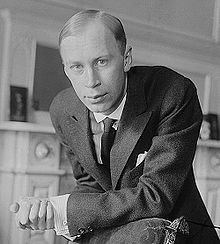
Sergei Prokofiev

In breathing new life into the symphony, sonata, and concerto, Sergey Prokofiev emerged as one of the truly original musical voices of the twentieth century. Bridging the worlds of pre-revolutionary Russia and the Stalinist Soviet Union, Prokofiev enjoyed a successful worldwide career as composer and pianist. As in the case of most other Soviet-era composers, his creative life and his music came to suffer under the duress of official Party strictures. Still, despite the detrimental personal and professional effects of such outside influences, Prokofiev continued until the end of his career to produce music marked by a singular skill, inventiveness, and élan.
Prokofiev produced propaganda music for the government, but also he composed violin sonatas, his “War Sonatas” for piano, the String Quartet No. 2, the opera War and Peace, and the ballet Romeo and Juliet which are all masterpieces of their respective forms. In 1948, with the resolution that criticized almost all Soviet composers, several of Prokofiev’s works were banned from performance. His health declined and he became more insecure. The composer’s last creative efforts were directed largely toward the production of “patriotic” and “national” works, typified by the cantata Flourish, Mighty Homeland (1947), and yet Prokofiev also continued to produce worthy if lesser-known works like the underrated ballet The Stone Flower (1943). In a rather bitter coincidence, Prokofiev died on March 5, 1953, the same day as Joseph Stalin.



